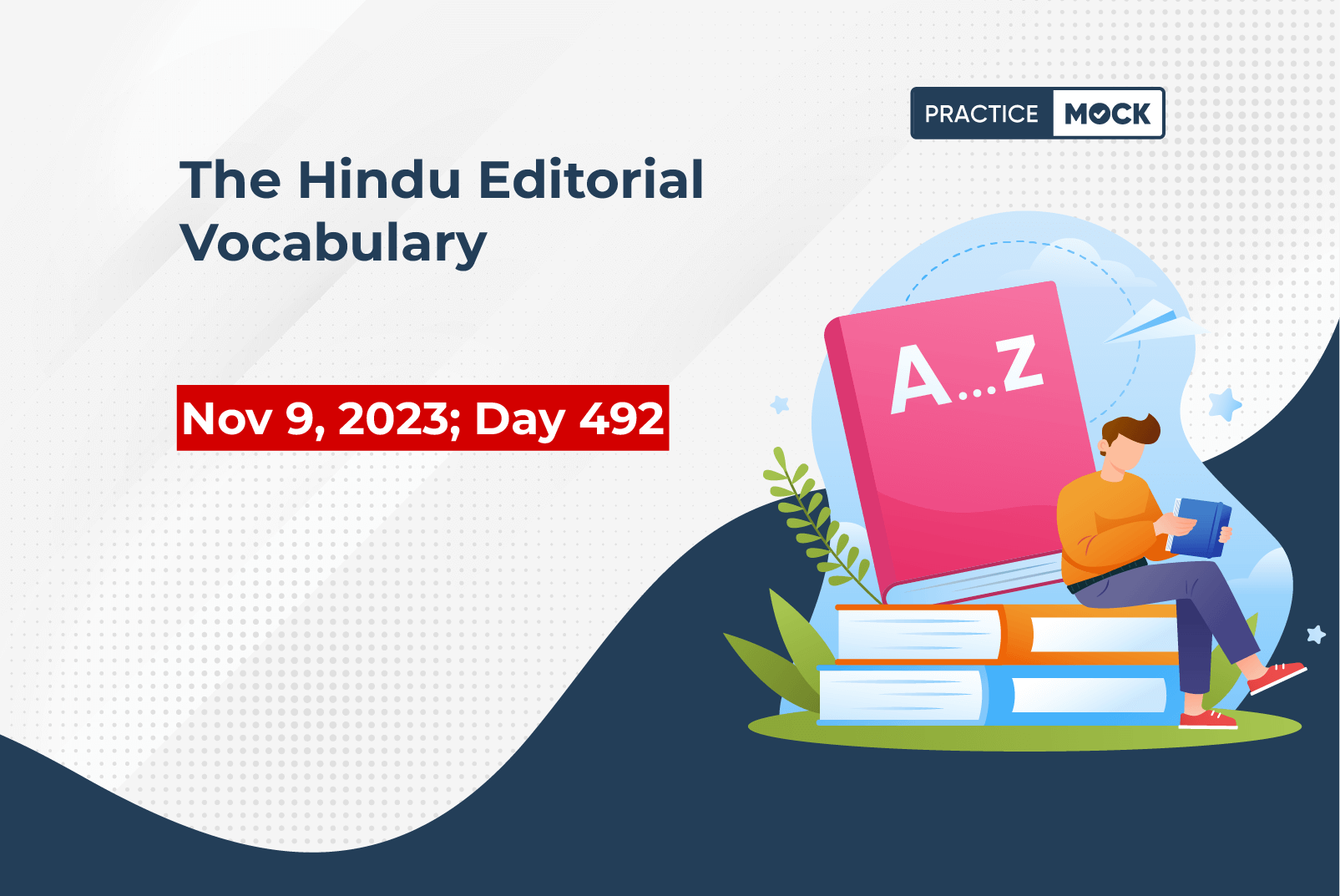| Difficult Word/ Phrase | Contextual Sense |
| Malicious | intentionally mischievous or harmful |
| Curb | The act of restraining power, action or limiting excess |
| Extort | to get something by using threats or violence |
| Disparaging | Expressive of low opinion |
| Interlocutory | Consisting of dialogue |
| Mala fide | In bad faith; dishonestly |
| Scrupulously | in a way that is careful to do the morally right thing |
| Pendency | the quality or state of being undecided, or in continuance; suspense |
| Have a good run | To experience joy or success in some endeavor, but only for a limited period of time |
| Sacrificed at the altar of | If you say that someone or something is sacrificed at the altar of another thing, you mean they suffer or are destroyed because of that thing |
| Unbridled | Not restrained or controlled |
Reviewing freedom: On the Kerala High Court case and negative reviews of films
Steps to end malicious (intentionally mischievous or harmful) reviews should not lead to curbs (The act of restraining power, action or limiting excess) on film criticism
An ongoing case before the Kerala High Court on restricting negative reviews of films in the first few days of their release constitutes an interesting as well as challenging free speech issue. The court has taken on the task of distinguishing genuine film criticism from attempts to destroy a movie’s prospects of success through malicious comments, or by threatening to post negative reviews with a view to extorting (to get something by using threats or violence) money. It appears that the court is aware of the implications of any move to restrict or curb disparaging (Expressive of low opinion) reviews for free speech and freedom of expression, but it remains to be seen how it will be able to balance the commercial interests of film-makers and the freedom of reviewers. Film director Mubeen Rauf had approached the court for a direction to the Information and Broadcasting Ministry and the State Information Technology Department, among others, to ensure that social media influencers and film reviewing vloggers do not publish any reviews of his film Aromalinte Adyathe Pranayam in social media for at least seven days from the date of its release. Remarks and observations made so far in interlocutory (Consisting of dialogue) orders suggest that the court’s focus is mainly on those who either post anonymously or vloggers with unknown credentials who trash films within hours of their release with apparently malicious intent, and do not threaten the freedom of film reviewers with acknowledged expertise and experience.
In an order on October 25, Justice Devan Ramachandran directed that “a close watch on the online platforms shall be maintained, to ensure that anonymous mala fide (In bad faith; dishonestly) content is not allowed to circulate; and necessary action under the provisions of the “IT Act” [Information Technology Act] shall be taken and implemented scrupulously (in a way that is careful to do the morally right thing) without delay”. Interestingly, the order also notes that apparently due to the very pendency (the quality or state of being undecided, or in continuance; suspense) of these proceedings, the film made by the petitioner had a good run (To experience joy or success in some endeavor, but only for a limited period of time) at the box office as it was spared “review bombing”, the term that has gained currency for the phenomenon of deliberate spoiling of a film’s prospects. The Union government is expected to file its response soon, but a word of caution will be in order. The court’s observation in its latest order that the freedom of those involved in making a film should not be sacrificed at the altar of (If you say that someone or something is sacrificed at the altar of another thing, you mean they suffer or are destroyed because of that thing) the “unbridled (Not restrained or controlled) freedom of expression” of those acting under the impression that they are not governed by any parameters or regulations should not lead to a verdict either curbing the freedom to critically analyse a film or an attempt to restrict the art of criticism. After all, making and reviewing a film are both two aspects of the same right to free speech.
Want to improve your vocabulary further? Download the Lists of Word-Meanings of Previous Months here.
- Sign Up on Practicemock for Updated Current Affairs, Free Topic Tests and Free Mini Mocks
- Sign Up Here to Download Free Study Material
Free Mock Tests for the Upcoming Exams
- IBPS PO Free Mock Test 2024
- RBI Grade B Free Mock Test 2024
- IBPS SO Free Mock Test 2024
- NABARD Grade A Free Mock Test 2024
- SSC CGL Free Mock Test 2024
- IBPS Clerk Free Mock Test 2024
- IBPS RRB PO Free Mock Test 2024
- IBPS RRB Clerk Free Mock Test 2024
- RRB NTPC Free Mock Test 2024
- SSC MTS Free Mock Test 2024
- SSC Strenographer Free Mock Test 2024
- GATE Mechanical Free Mock Test 2024
- GATE Civil Free Mock Test 2024
- RRB ALP Free Mock Test 2024
- SSC CPO Free Mock Test 2024
- AFCAT Free Mock Test 2024
- SEBI Grade A Free Mock Test 2024
- IFSCA Grade A Free Mock Test 2024
- RRB JE Free Mock Test 2024
- Free Banking Live Test
- Free SSC Live Test


